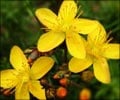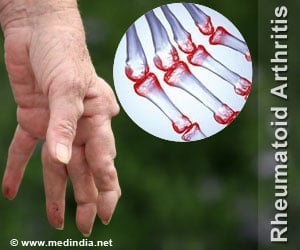An herbal medicine used to treat cardiovascular diseases in China may improve symptoms of chest pain when used in conjunction with traditional treatments.
An herbal medicine used to treat cardiovascular diseases in China may improve symptoms of chest pain when used in conjunction with traditional treatments, according to a new systematic review.
In several studies included in the review, taking tongxinluo improved angina patients’ electrocardiogram results. Overall, though, the review did not provide solid evidence that the medicine routinely benefits cardiac patients with angina.“Tongxinluo is one of the most successful traditional Chinese medicines on the market in China,” said lead author Wu Taixiang.
Tongxinluo, widely used in parts of Asia, is composed of eight herbs and insects, which are mixed together, ground to a fine powder and enclosed in capsules. Patients taking it for cardiovascular conditions typically consume three to four capsules, three to four times daily, for four weeks.
Because of the medicine’s popularity, Taixiang, an associate professor at Sichuan University, West China Hospital, in Chengdu, Sichuan, and his coauthors say they felt a “social responsibility” to investigate possible clinical benefits.
The review appears in the current issue of The Cochrane Library, a publication of The Cochrane Collaboration, an international organization that evaluates research in all aspects of health care. Systematic reviews draw evidence-based conclusions about medical practice after considering both the content and quality of existing trials on a topic.
The meta-analysis compiled data from 18 randomized controlled trials, all conducted in China, comprising 1,413 patients ranging in age from 25 to 88. Most of the trials examined the effect of tongxinluo when used in conjunction with traditional angina treatments compared to traditional treatments alone.
Advertisement
With stable angina, patients experience a regular pattern of chest pain. In unstable angina, patients experience unpredictable pain due to a restriction or blockage in blood flow. A third type of angina, called variant angina, occurs rarely.
Advertisement
Conventional pharmacological treatment for patients with angina typically includes medications such as nitrates, which relax and widen blood vessels; beta-blockers, which slow the heart rate and lower blood pressure; calcium channel blockers, which relax blood vessels and slow heart rate; and heparin, which prevents clot formation.
In seven of the studies in the review, patients with unstable angina treated with tongxinluo and conventional treatment who underwent EKGs had better results than patients treated with conventional treatment alone. An EKG measures the electrical activity of the heart and helps physicians detect cardiac problems or changes.
Evidence from ten of the studies indicated that the herbal medicine improved angina symptoms, such as chest pain and discomfort. In three of the studies, tongxinluo’s results appeared as effective as those of nitrate medications.
Tongxinluo’s beneficial role in treating angina did not surprise Taixiang, who called the review “an encouraging exploration.”
However, more work needs to be done, according to the study authors. The studies did not show that the use of tongxinluo reduced the number of heart attacks, sudden death or the need for cardiac procedures such as bypass or angioplasty.
The review also linked the herbal medicine to uncomfortable side effects, including gastrointestinal symptoms and blood vessel breakage under the skin.
The studies offered only short-term analysis for a small number of patients. Most of the reviewed trials involved fewer than 100 participants, and all of the studies evaluated tongxinluo’s effects for no longer than eight weeks.
But the main shortcoming of the studies that evaluated the medicine was their poor quality. “Some trialists selected an incorrect drug as the control in their trial, thus resulting in a wrong conclusion,” Taixiang said. As a result, he said, “we cannot recommend the use of [tongxinluo] based on current evidence that resulted from poor quality trials.”
Weiss agreed that the review lacked evidence that the herbal medicine benefits angina patients. “It would require a controlled randomized clinical trial with a fairly large number of patients — hundreds at least — to see whether this agent added to usual treatment would benefit patients,” he said.
People with new, worsening or persistent chest pain should be treated immediately in the emergency department of a hospital.
Source-Newswise
SRM











